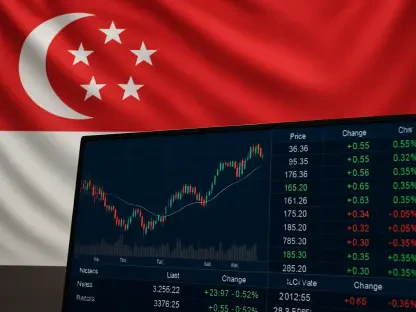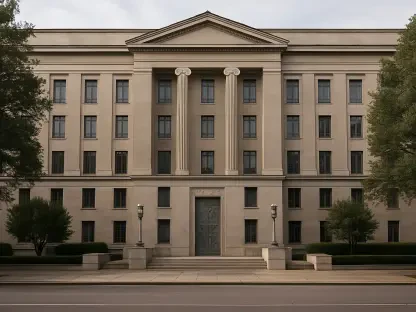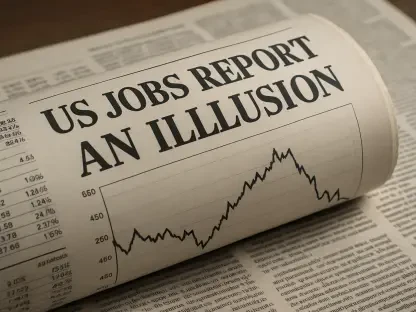I’m thrilled to bring you an insightful conversation with Priya Jaiswal, a globally recognized authority in Banking, Business, and Finance. With her deep expertise in market analysis, portfolio management, and international business trends, Priya offers a unique perspective on the complex dynamics of global trade and geopolitics. Today, we dive into the escalating tensions between the U.S. and China over oil purchases from Russia and Iran, exploring the economic stakes, strategic maneuvers, and potential outcomes of this high-stakes standoff. Our discussion touches on the broader implications for international relations, the effectiveness of tariff threats, and the delicate balance of energy needs versus diplomatic pressures.
How do you see the current trade negotiations between the U.S. and China unfolding, especially given the recent friction over oil purchases from Russia and Iran?
The negotiations are at a critical juncture. Both sides are showing a willingness to stabilize commercial ties, which is promising after years of escalating tariffs and trade barriers. However, the U.S. demand for China to halt oil imports from Russia and Iran has become a major sticking point. From what I’ve observed, China’s firm stance reflects a deep commitment to its energy security and sovereignty. The U.S., on the other hand, is leveraging tariff threats to push its geopolitical agenda, particularly to cut funding for military activities in Russia and Iran. It’s a classic case of economic tools being used for political ends, but the risk of derailing progress on a broader trade deal is very real.
What do you think is driving China’s unwavering position on continuing to buy oil from Russia and Iran, despite the threat of hefty tariffs?
China’s position is rooted in both economic necessity and strategic alignment. Oil from Russia and Iran accounts for a significant portion of China’s energy imports—often at discounted rates, which is a huge cost-saving for their economy. Beyond that, maintaining these purchases aligns with China’s broader geopolitical strategy, especially its partnership with Russia. This isn’t just about fuel; it’s about preserving a counterbalance to Western influence. Walking away from these supplies would not only disrupt their economy but also signal a retreat from their foreign policy priorities, which Beijing is unlikely to accept.
How effective do you believe the U.S. threat of a 100% tariff is in influencing China’s energy policies?
I’m skeptical about its effectiveness. Tariffs of that magnitude are a blunt instrument, and while they might inflict pain, they’re just as likely to harden China’s resolve. Beijing has already signaled it views this as coercion rather than negotiation, and history shows they’re prepared to retaliate in kind. Moreover, China might be betting that the U.S. won’t follow through, given the potential fallout on both economies and the broader goal of a trade deal. It’s a high-risk strategy for the U.S., and I suspect it could backfire by escalating tensions rather than fostering compliance.
What are the broader economic implications for China if it were forced to stop importing oil from these countries?
The impact would be severe. China relies on millions of barrels daily from Russia and Iran, and finding alternative suppliers at similar prices overnight is nearly impossible. Switching sources would likely mean higher costs and potential supply chain disruptions, which could ripple through their manufacturing and industrial sectors. Energy prices would spike domestically, affecting everything from consumer goods to transportation. Plus, it would strain their foreign reserves as they scramble to secure new deals. Economically, it’s a non-starter, which is why China is digging in its heels on this issue.
How do you see the U.S. balancing its goals of restricting funds to Russia and Iran with the need to maintain stable trade relations with China?
It’s a tightrope walk for the U.S. The primary goal is clear: reduce the revenue streams that fuel Russia’s war in Ukraine and Iran’s regional activities. But pushing China too hard risks derailing the fragile progress on trade talks. The U.S. might need to explore alternative levers, like targeted sanctions or offering incentives for China to diversify its energy sources. A purely punitive approach, like tariffs, could alienate Beijing and push them closer to Moscow. It’s about finding a middle ground where the U.S. can advance its security interests without triggering a full-blown trade war.
What role do you think India’s position on Russian oil purchases plays in this dynamic, and how does it compare to China’s situation?
India’s role is fascinating because it’s in a similar boat as China, being a major buyer of Russian oil, often at discounted rates. However, the U.S. seems to be taking a slightly softer tone with India, perhaps due to strategic partnerships like the Quad alliance. While tariffs have been threatened against India as well, the rhetoric isn’t as sharp as it is with China. This discrepancy could create perceptions of inconsistency in U.S. policy, which China might exploit to question the fairness of the demands. India’s “time-tested” relationship with Russia mirrors China’s strategic ties, but the geopolitical stakes with China are arguably higher due to its economic clout.
How do you interpret China’s confidence in pushing back against U.S. demands, and what does it say about the shifting power dynamics in global trade?
China’s confidence signals a broader shift in global trade dynamics. They’re no longer just a participant; they see themselves as a dominant player with leverage. This pushback isn’t just about oil—it’s a statement that Beijing won’t be dictated to, even by the world’s other economic superpower. Their growing economic interdependence with other nations, coupled with domestic resilience, gives them the confidence to play hardball. It reflects a world where power isn’t as unilateral as it once was, and the U.S. can’t rely solely on economic pressure to enforce its will.
What is your forecast for the outcome of these trade negotiations between the U.S. and China, especially regarding the oil dispute?
I think we’re in for a prolonged stalemate on the oil issue. Neither side is likely to fully concede—China won’t abandon its energy strategy, and the U.S. won’t drop its geopolitical objectives. However, I expect some form of compromise to emerge, perhaps through indirect measures like China quietly reducing import volumes over time in exchange for tariff relief or other concessions. A full trade deal might still happen, but it’ll likely skirt around this issue rather than resolve it. The bigger question is whether both sides can manage the friction without letting it spiral into a broader conflict.









